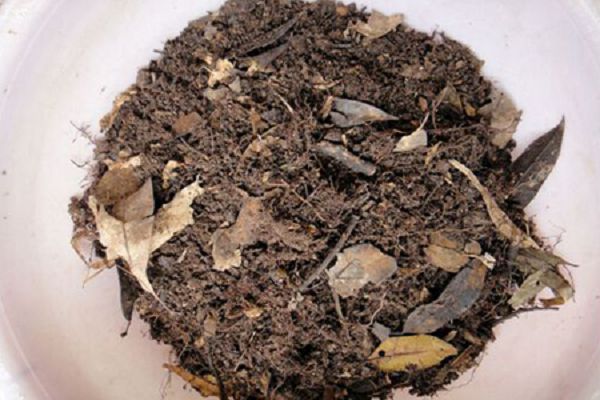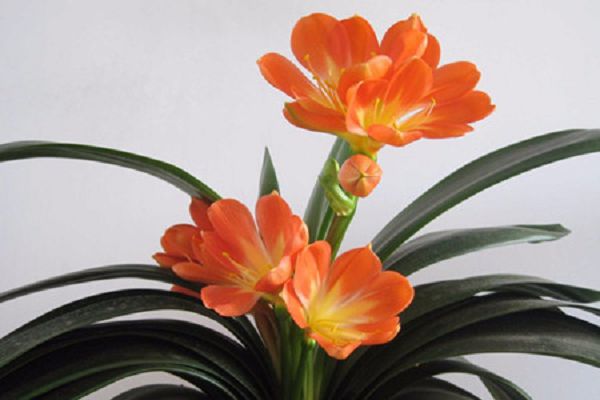The gentleman orchid lived a long life, pulled a leaf and threw it into the soil, and the white root exhaled.
The Spring Festival is coming soon. Huahua has recently spent no less money in order to buy flowers. What can I do when I see my wallet getting shrunken? How about... Grab a leaf to cuttage, a pot into a hundred pots, flowers to grow flowers, onto the broad road to get rich.
The magnolia broke its leaves and buried it in the soil, changing from 1 pot to 10 pots in half a year.
1, prepare a gentleman orchid, break off the leaves from the bottom up (be sure to bring the white part), and soak it with rooting powder solution before cutting.
2. Then insert the leaves of Cymbidium into the nutrition cup we have prepared, and the matrix can be made of nutritious soil or vermiculite.
3, the cutting of the gentleman orchid sitting in the tray, using the way of soaking the pot to replenish the water for the plant, generally 30 days can grow new roots.
4. After taking root, the gentleman orchid can be planted in a large flowerpot, and the soil can be mixed with pine needle soil and sand. (it is best to tilt planting, which is conducive to germination.)
5, usually can use the hand to pick up the soil, feel the matrix inside dry, soak the basin for 30 minutes. As long as you take good care of it, if you are fast and slow for 3 months, you will be able to sprout new buds for more than half a year.
6. If the plant does not hold back new buds for a long time, we can make a small cut on the inside of the leaves close to the soil and smear vitamin B6 injection to induce them to germinate.
If the long-lived leaves are buried in the soil, they can sprout in a month.
1. When we insert longevity flowers in the leaves, it is best to choose the leaves with obvious bud points, and when breaking the leaves, the petiole has as much tissue as possible on the stem, so that it is easy to grow buds.
2. Throw the broken leaves in the astigmatism ventilation place, dry the wound for 2 hours, hold the leaves in hand, and insert the petiole into the soil. (leaves facing up are best.)
3. After the cuttage is finished, we use the way of soaking the pot to replenish the water for the plant until the soil surface is wet, and then keep it in a place that is out of direct sunlight and ventilated.
4, usually feel the soil surface white water once permeable, generally 10 days can grow new roots, 30 days can send out small buds.
5. After sprouting, transplant the longevity flowers into a seedling cup or a small flowerpot and gradually increase the light intensity until the seedlings can receive all-day sunshine.
6. When the seedling grows to four pairs of leaves, pick the heart, pinch off the top two pairs of leaves, wait until the lateral branches grow four pairs of leaves, repeat three times and the flowers will flourish.
Tiger Pilan cut into the water and raised a large basin in 3 months.
1. Choose a strong tiger skin orchid leaf, use a pair of sharp scissors (disinfect with alcohol before use), cut the tiger skin orchid into several small pieces (length above 5cm).
2. Put the cut tiger skin orchid leaves in an astigmatic and ventilated place for half a day, and wait for the wound to dry before hydroponics, otherwise it is easy to get infected with germs.
3. Insert the dried tiger skin orchid vertically into the water, the water depth can be 3~5cm, be careful not to insert it upside down, otherwise it will not take root.
4. put it in the astigmatism place in the early stage of hydroponics, change the dried tap water once every 4-5 days on average, and new roots can take place in about 10 days.
5. After a month of hydroponic culture, we observed that when Tiger Pilan took root, one drop of nutrient solution could be dropped when changing water, and new buds could be produced in about 2 months.
6. When the seedlings grow to 10cm, they can be taken out and planted in the soil. When transplanting, we can keep the mother leaves or break them off.
7. After transplanting, pour a fixed root water and put it in a slow basin in a place with astigmatism and ventilation. If the seedlings do not soften after a week, they can be maintained normally.
- Prev

What kind of soil does the gentleman orchid use? how to alleviate the yellowing of the leaves?
What kind of soil does the gentleman orchid use? how to alleviate the yellowing of the leaves?
- Next

How to judge whether the orchid should be watered or not
How to judge whether the orchid should be watered or not
Related
- Is the orchid suitable for indoor use? Is it good for the body?
- How to prevent the empty root of orchids?
- What to do after the crab claw orchid is withered?
- Why are the leaves of orchids always yellow? Fertilizing and watering.
- Can the root of the gentleman orchid be saved if it is rotten?
- Diagnosis and treatment of cotton-blowing beetle insects in Cymbidium
- There is a way for a gentleman's orchid to rot.
- What is the most suitable temperature and humidity for the orchid?
- How to raise a gentleman's orchid? Cultivation techniques of Cymbidium
- How to prepare the nutritive soil for the cultivation of Cymbidium

